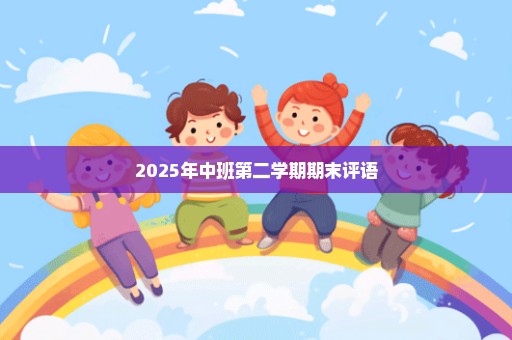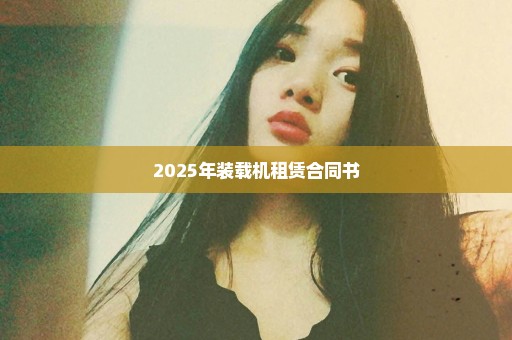常见的英语问候语(正式与非正式场合的区别)
我们读书时学过如何用英语打招呼问候,但是其实英语中的问候语有分正式和非正式场合,下面就来介绍下不同场合中如何用英语进行问候。
Greetings are used to say hello in English. It's common to use different greetings depending on whether you greet a friend, family or a business associate. When you meet friends, use informal greetings. If it's really important, use formal greetings. Formal greetings are also used with people you do not know very well.
在英语中,问候语被用跟别人打招呼。根据与你会面的是朋友,家人还是商业伙伴,我们常会使用不同的问候语。如果确实是在重要的场合,我们会使用正式的问候语。正式的问候语也可以用于那些不太熟悉的人。
Greetings also depend on whether you are saying hello, or you are saying goodbye.
在打招呼或者告别的时候,我们使用的问候语也不同。
Learn the correct phrases using the notes below, and then practice using greetings with the practice dialogues.
利用下面的提示,学习正确的短语用法,然后利用下面的对话来练习问候语。
Formal Greetings:Arriving
正式问候语:到达
Good morning / afternoon / evening.
早上好/中午好/晚上好
Hello (name), how are you?
嗨(人名),你好吗?
Good day Sir / Madam (very formal)
先生/太太日安(非常正式)
Respond to a formal greeting with another formal greeting.
使用正式问候语来回应
Good morning Mr. Smith.
早上好,史密斯先生。
Hello Ms. Anderson. How are you today?
你好,安德森女士。你今天过得好吗?
Informal Greetings: Arriving
非正式问候语:到达
Hi / Hello
你好
How are you?
你好吗?
How are you doing?
你还好吗?
What's up? (very informal)
怎么了?(非常随意)
It's important to note that the question How are you? or What's up? doesn't necessary need a response. If you do respond, these phrases are generally expected:
注意:How are you?或What’s up?这两个问题是不需要回答的。如果你要回答,可以使用这些短语。
How are you? / How are you doing?
你好吗?
Very well, thank you. And you? (formal)
非常好,谢谢。你呢?(正式)
Fine / Great (informal)
不错(非正式)
What's up?
怎么了?
Not much.
没什么。
I'm just (watching TV, hanging out, cooking dinner, etc.)
我只是在(看电视,出去玩,做晚饭等等)
Informal Greetings - After a Long Time
非正式问候——久别重逢
If you haven't seen a friend or family member for a long time, use one these informal greetings to mark the occasion.
如果你过了很久才见到意为朋友或家人,可以将下面的非正式问候语运用到该场合。
It's great to see you!
见到你真好!
How have you been?
你最近好吗?
Long time, no see.
好久不见。
How are you doing these days?
你这段时间过得怎么样?
Formal Greetings: Departing
正式问候语:分别时
Use these greetings when you say goodbye at the end of the day. These greetings are appropriate for work and other formal situations.
当你在一天结束后告别时,可以使用这些问候语。这些问候语适用于工作及其他正式场合。
Good morning / afternoon / evening.
早上好/下午好/晚上好。
It was a pleasure seeing you.
见到你真高兴。
Goodbye.
再见。
Note: After 8 p.m. - Good night.
注意:晚上八点之后——晚安。
Informal Greetings: Departing
非正式问候语:分别时
Use these greetings when saying goodbye in an informal situation.
在非正式场合中,可以使用这些问候语来进行告别。
Nice seeing you!
见到你真高兴!
Goodbye / Bye
再见
See you later
回头见
Later (very informal)
回见(非常随意)
Here are some short example conversations for you to practice greetings in English. Find a partner to practice and take a role. Next, switch roles. Finally, make up your own conversations.
下面是一些简短的对话举例,可以帮助你练习英语中的问候语。找一个搭档一起练习,并扮演其中一个角色。然后互换角色。最后再形成你自己的对话。
Greetings in Informal Conversations
非正式对话中的问候语
Anna: Tom, what's up?
汤姆,什么事?
Tom: Hi Anna. Nothing much. I'm just hanging out. What's up with you?
你好,安娜。没什么事。我要出门了。你好吗?
Anna: It's a good day. I'm feeling fine.
真是美好的一天。我很好。
Tom: How is your sister?
你妹妹好吗?
Anna: Oh, fine. Not much has changed.
哦,不错。她没怎么变样。
Tom: Well, I have to go. Nice seeing you!
好的,我要走了。见到你真高兴!
Anna: Later.
回头见。
Maria: Oh, hello Chris. How are you doing?
噢,你好克里斯。最近怎么样?
Chris: I'm well. Thanks for asking. How are you?
很好。多谢关心。你好吗?
Maria: I can't complain. Life is treating me well.
不错。我的日子过得很好。
Chris: That's good to hear.
能听到你这样说真是太好了。
Maria: Good to see you again. I need to go to my doctor's appointment.
回头见。我也得去见医生了。
Chris: Nice seeing you.
见到你真高兴。
Maria: See you later.
回头见。
Greetings in Formal Conversations
正式场合的问候
John: Good morning.
早上好。

Alan: Good morning. How are you?
早上好。最近好吗?
John: I'm very well thank you. And you?
我很好,谢谢。你呢?
Alan: I'm fine. Thank you for asking.
不错。谢谢关心。
John: Do you have a meeting this morning?
今天早上你有会议吗?
Alan: Yes, I do. Do you have a meeting as well?
是的,我有。你也有会议吗?
John: Yes.
是的。
Well. It was a pleasure seeing you.
见到你真高兴。
Alan: Goodbye.
谢谢。
Notes
注意
Greeting someone when you are introduced.
当别人介绍你时,你可以使用的问候语
Once you have been introduced to someone, the next time you see that person it is important to greet them. We also greet people as we leave people. In English (as in all languages), there are different ways to greet people in formal and informal situations.
当你被介绍给某人后,下次你们见面时,进行问候就显得非常重要。在离别时我们也会问候对方。在英语(所有语言)中,正式和非正式条件下,我们会采用不同的方式来问候别人。
Introduction (first) Greeting:
初次见面的问候
How do you do?
你好
Tom: Peter, I'd like to introduce you to Mr. Smith. Mr. Smith this is Peter Thompsen.
皮特,我给您介绍一下史密斯先生。史密斯先生,这位是皮特·汤普森。
Peter: How do you do?
你好。
Mr. Smith: How do you do?
你好。
The question 'How do you do' is only a formality. In other words, the question does not need to be answered. Rather, it is a standard phrase used when meeting some for the first time.
How do you do这个问题只是一种礼节性的提问。也就是说,我们不需要进行回答。也就是说,它是在第一次见到某人时使用的标准短语。
Use these phrases to say that you are happy to meet someone when introduced for the first time.
当初次被介绍给某人时,可以使用这些短语来表达你见到某人的喜悦之情。
It's a pleasure to meet.
见到你真高兴。
It's nice to meet you.
见到你真高兴。
Greetings after the Introduction
介绍之后的问候
How are you?
你好
Once you have met someone, it's common to use standard greetings such as 'Good Morning', 'How are you?' and 'Hello'.
在你见到某人后,我们常用类似于Good Morning,How are you? 和Hello等标准问候语。
Jackson: Hi Tom. How are you?
你好,汤姆。最近怎么样?
Peter: Fine, and you?
不错,你呢?
Jackson: I'm great.
非常好。
测试
FIll in the blanks with an appropriate word for these formal and informal greetings.
从正式和非正式的问候语中,选取适当的词语填入空白处。
Saul: I'd like to ________ you to Mary. Mary this is Helen.
Helen: How do you _____.
Mary: _____ do you do.
Helen: It's _______ to meet you.
Mary: It's my __________.
Jason: I'm going home now. See you _____.
Paul: _____.
It's time for bed. Good _____!
Ron: Hey Jack. What's _____?
Jack: _______ much. I'm _______ watching TV.
答案
introduce
do
How
nice
pleasure
later
Goodbye / Bye / Later
night
up
Nothing / Not - just
一、使用场合不同
"新年好":比较正式,适合一些不是很随意的场合,比如给长辈拜年,向别人问好。
"过年好":显得较随意了一些,适合在熟人,朋友,同辈之间。
二、侧重点不同
“新年好”强调一个新字,是一个名词。
“过年好”强调一个过字,表示一个过程,是个动词。
新年习俗
我国过年历史悠久,在传承发展中已形成了一些较为固定的习俗,有许多还相传至今,如办年货、扫尘、贴年红、团年饭、守岁、压岁钱、拜岁;
拜年、舞龙舞狮、拜神祭祖、祈福攘灾、烧炮竹、烧烟花、游神、押舟、庙会、游锣鼓、游标旗、上灯酒、赏花灯等习俗。
传统的节日仪式与相关习俗活动,是节日元素的重要内容,承载着丰富多彩的节日文化内涵。
拜祭祖先不仅涵盖了中国所有的古老传统节日,也是中国民俗节日永远的主题。
鹏仔微信 15129739599 鹏仔QQ344225443 鹏仔前端 pjxi.com 共享博客 sharedbk.com
图片声明:本站部分配图来自网络。本站只作为美观性配图使用,无任何非法侵犯第三方意图,一切解释权归图片著作权方,本站不承担任何责任。如有恶意碰瓷者,必当奉陪到底严惩不贷!
 百科狗
百科狗



